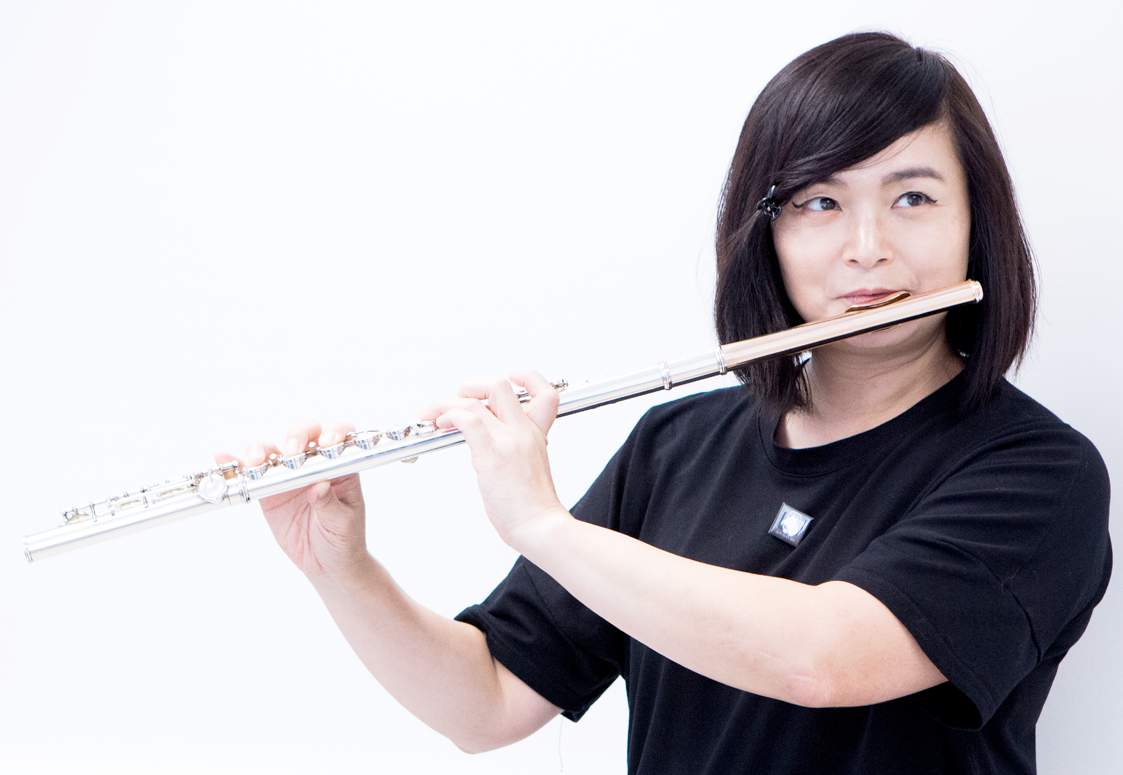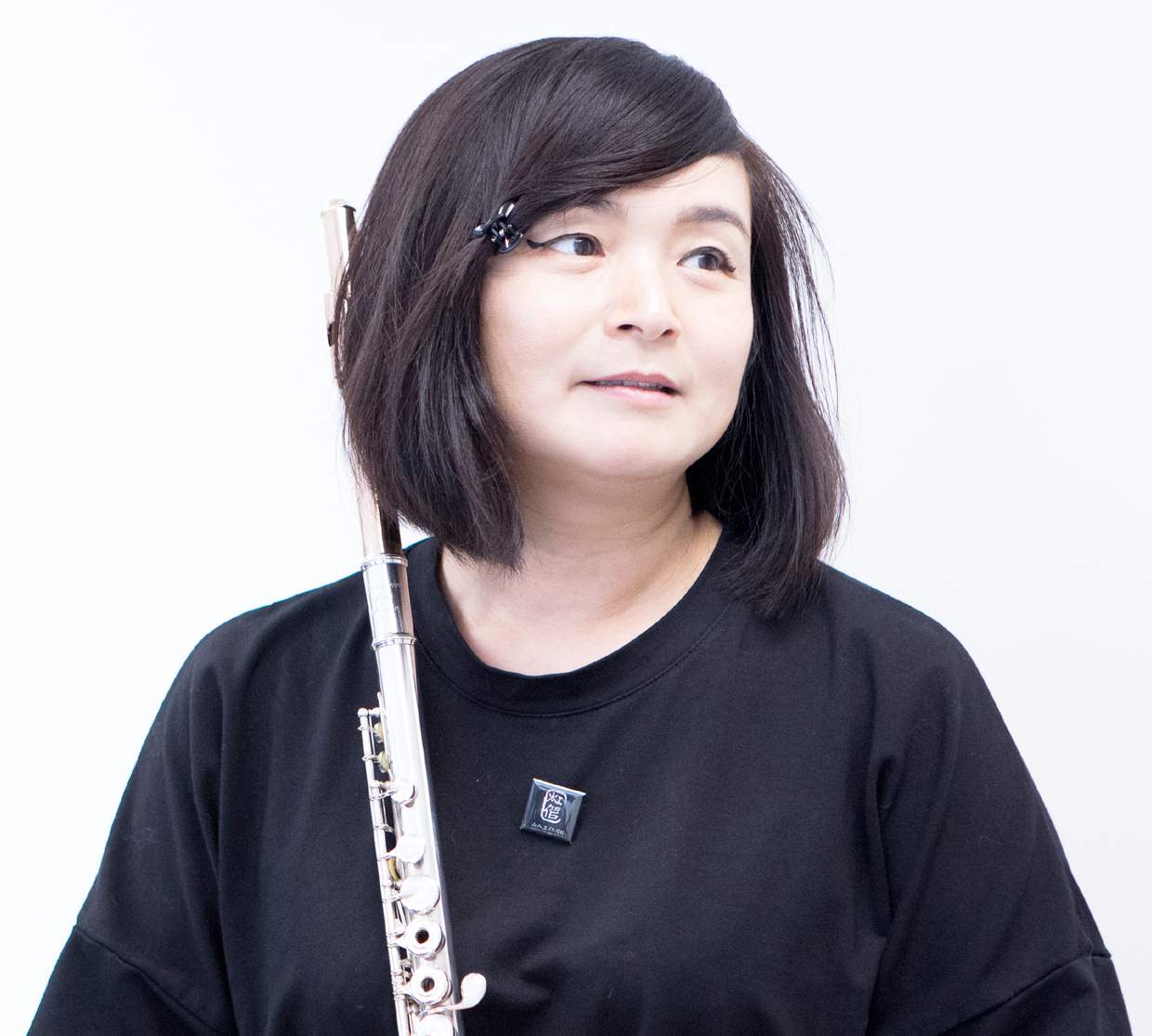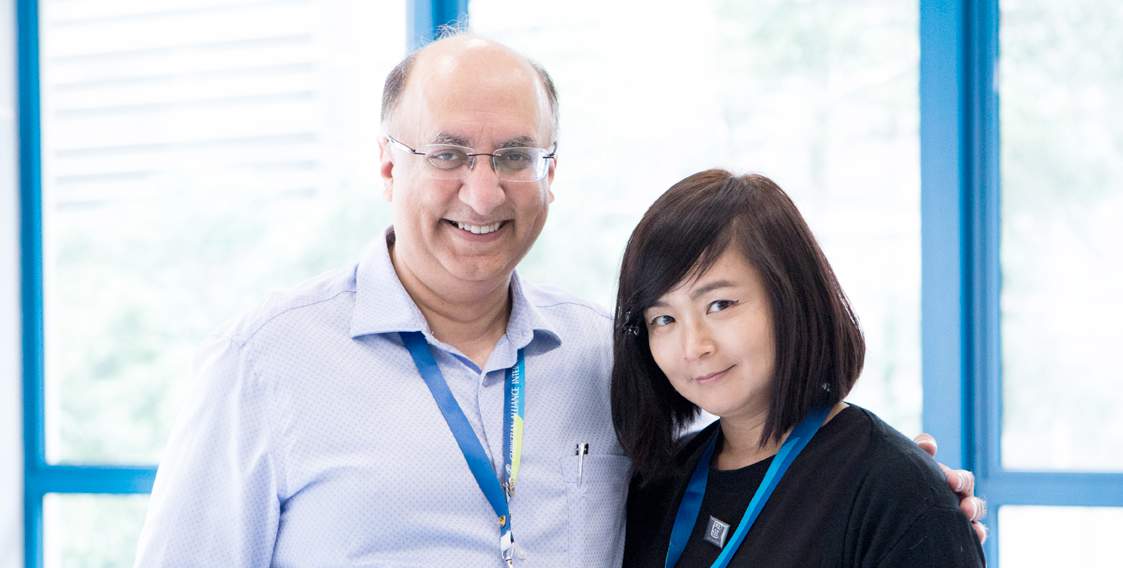A passion for music and music education #4 of 7
June 2, 2020
We sit with accomplished musicians heading the CAIS Specialized Orchestral Training Program and ask them to take us to the beginning of their musical journeys, what inspired them, how they nurtured their passion and talent for music, their professional careers and what led them to teach music to others.
Flutist – Izumi Nikaido
Vinod Khiatani (VK)
Izumi Nikaido (IN)
 Could you give our readers a brief introduction of yourself?
Could you give our readers a brief introduction of yourself?
I am Izumi Nikaido and I am a flutist. I was born in Kagoshima City, Japan and started to play the piano when I was 3 years old. At 11, I taught myself to play the Piccolo. I studied in Kagoshima Junior College, the Royal Academy of music, the Hong Kong Academy of Performing Arts, and Lécole normale musique de Paris. I was the assistant principal flutist for the Guangzhou Symphony Orchestra, acting flute/ piccolo of Hong Kong Sinfonietta and currently a free-lance orchestra/ensemble flute player and educator.
You are very cosmopolitan – Japan, China, U.K., Hong Kong…Let’s go back to the beginning in Japan. You started with the piano and switched to the flute, how did that happen?
I started playing the piano mainly because my mother played it and I was curious about it. My mother enjoyed a wide variety of artistic endeavors and I naturally enjoyed the musical expression I was growing up with. Actually, I did not start playing the flute but started with another instrument called the piccolo. It was during a visit to hear an orchestral piece that my attention was drawn towards the sound of this interesting instrument. I loved the sound so much that I asked my father to buy me a piccolo. So at the age of 11, I started playing the piccolo learning it by myself. It wasn’t until much later that I was advised by a teacher that I should learn how to play the flute first as that is the proper sequence. So I switched to studying the flute.
So how did you end up in the UK?
My parents have always been very supportive of my interests. When I graduated high school, I had a choice of either going to study at a University in Tokyo or study in a junior college for 2 years and then go abroad for the next 2 years. I was captivated by the idea of expanding my horizon so I opt for the 2-year college in Japan followed by the overseas study. Initially, I went to U.K. to study English as I felt I need to improve my language ability before I can enroll in a music school.
Why not the USA instead?
My father who was a journalist by profession suggested that America would not suit my personality as I am not competitive by nature and he felt that I would not gain much due to my shyness. I agreed with his suggestion and since I enjoyed rock music, I thought it would be better to go to U.K. instead.
 How did you end up in Hong Kong?
How did you end up in Hong Kong?
I was in London studying English and I visited the Royal Academy of Music to hear a master class. I was once again intrigued by music and decided to pick up the flute again.
So I enrolled in the Royal Academy for 1 year. After that, my father suggested that perhaps it is time to come back home except home this time was not in Japan but in Hong Kong as he was posted to Hong Kong. My teacher in U.K. wanted me to stay in U.K. and continue my training but seeing that it was not going to happen, connected me with a teacher teaching at the Hong Kong Academy of Performing Arts. I wrote to them and after the interview and auditions, they agreed to accept me as a student and that is how I ended up in H.K. I studied at HKAPA for 2 years. Then I left for Paris as I was fascinated with the French form of music and enrolled myself at the lécole normale musique de Paris for 2 years. Then back to H.K. followed by playing flute for the Guangzhou Symphony Orchestra until 2006, then back to H.K. to play for the Hong Kong Sinonietta. And I have been here ever since.
So how long have you been away from Japan?
It would be about 30 years counting the time I was in U.K., Paris, Guangzhou, Hong Kong.
Besides teaching wmusic, what other activities are you involved in?
I do some recording for music videos; play in an ensemble that toured last year. I also play the keyboard in an indie Reggae band called Sensi Lion. This year we played at the Clockenflap –Indie Music festival here in Hong Kong. I am also learning dancing (ballet) and taking care of my pets (1 cat, 2 dogs). The cat has been with me since my stay in Guangzhou and the dogs were adopted here in Hong Kong.
A cat all the way from Guangzhou?
Yes (laughs) from Guangzhou so she is quite old now. The cat was the reason I did not go back to Japan but came to Hong Kong instead. If I had taken the cat back with me to Japan, the cat would have to be quarantined for at least a few months (180 days). But in Hong Kong, the quarantine time is much shorter. So I decided I could not stay away from my cat for so long therefore I came to Hong Kong.
You mentioned that your mother was a great source of inspiration and support for you – she was a professional dancer and still teaches dancing. Do you dance?
Lately, I have been learning different forms of dancing including ballet. I love learning new things and I try to explore many different artistic endeavors. I think that because if it helps me greatly to relate to my students better as I can understand what they are feeling when they try to learn something new and challenging. If I do not try new things, I feel I cannot connect with them when they are frustrated and would, therefore, quit learning.
 How do you motivate your students?
How do you motivate your students?
Learning to play an instrument and read the score if you are learning to play classical pieces is definitely not easy. It is important to practice and get the finger positioning correct and many other technical details but I focus on the experience each one of my students has when they are learning the instrument at that moment. I want them to be in a happy emotional state when they are engaged with the instrument. This way the discipline to practice comes from the heart within. I also try to emphasize their strengths – what they can do and are doing correctly and use it to compensate for their weakness. Usually, in about three months’ time, I would say they are able to hear, play and appreciate some beautiful songs and that motivates them to learn more.
